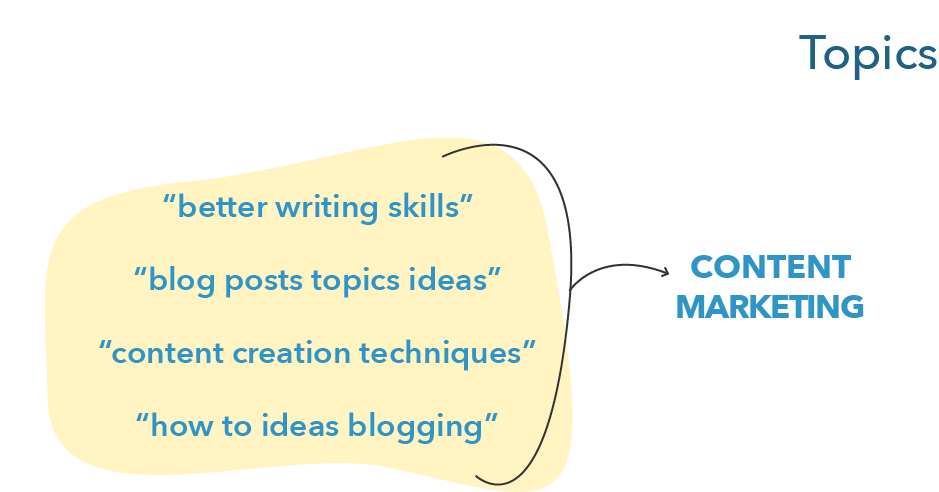Building Topical Relevance
Over the last few chapters, we covered the basics of SEO, how to think about content creation and ads based on consumers’ needs and challenges, how to identify opportunities based on the concrete actions during their journey, and how to respond with ad hoc marketing activities.
Building topical relevance is part of a firm’s longer-term strategy for positioning itself and its web properties. It entails breaking down the general needs and challenges that consumers are experiencing into key topics that will orient our marketing efforts.
For example, if we wanted to build topical relevance on the topic of content marketing, we would come up with potential searches and areas of interest to create many blog posts, social media posts, and pieces of gated content on this topic (Figure 6.5).
Figure 6.5 Topics

To start building a web presence around certain key topics of interest to your consumers, the first step is to identify which topic you are interested in. A first, customer-driven, way to identify topics is by looking at the type of searches being carried out by consumers, which can be done using tools such as Google Trends or Search Reports in Google Analytics. Firms can also survey and interview consumers to better understand what is relevant to them, what their key needs and challenges are, and how they turn to the web to help address these. A second way to identify topics is through keyword analysis, as we discussed in Chapter 3.
Once a topic has been identified (e.g., content marketing), firms will plan their strategy to slowly build their relevance on that topic. Viewed from this perspective, each piece of content (e.g., a blog post) aims at addressing one targeted search. For example, a blog post positioned on the keywords “better writing skills” will answer a piece of the puzzle of content marketing: how to improve one’s writing skills. These might be hundreds of subtopics associated with a specific topic, opening further opportunities for content marketing efforts. A topic is thus a general domain that can tie together many specific searches (as exemplified in Figure 6.5).
Over time, building topical relevance will help a website, as a whole, show up higher on SERPs. This is because it helps address the main factors on which websites are ranked that we covered in Chapter 3: It facilitates the creation of cross-links, will help consumers spend more time on a website, boosts page views, and so on. Consumers might enter the website on the page on how to better their writing skills, for example, and once they are done reading their blog post, see and click on a recommended post on how to generate blog post ideas, increasing page views and time spent on site.
